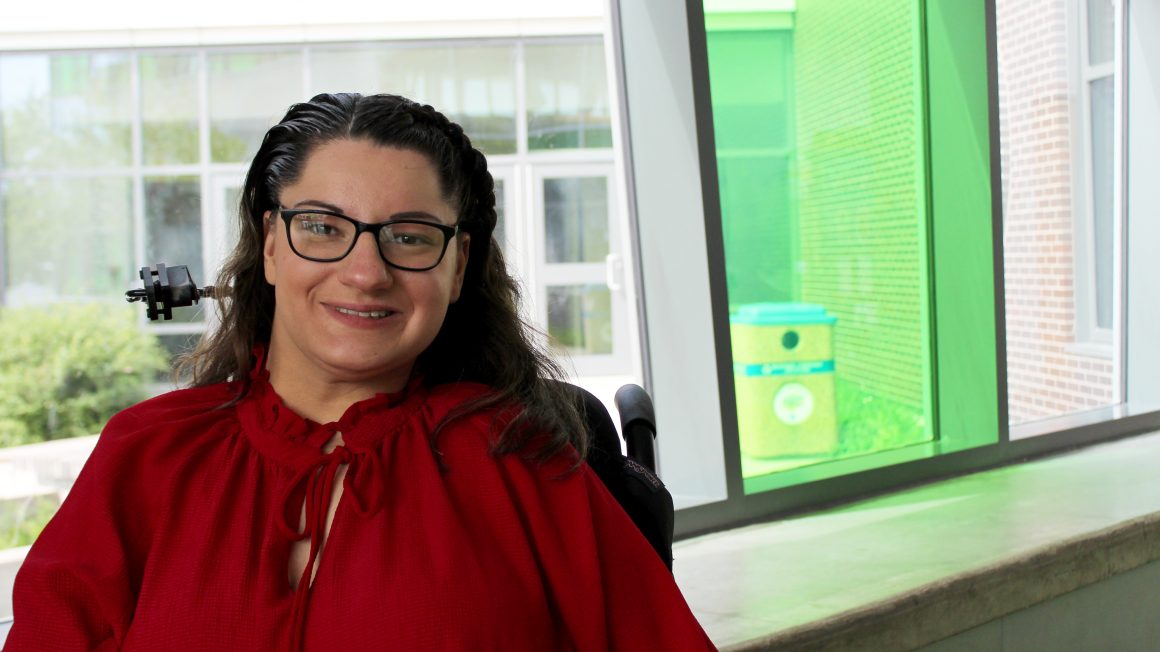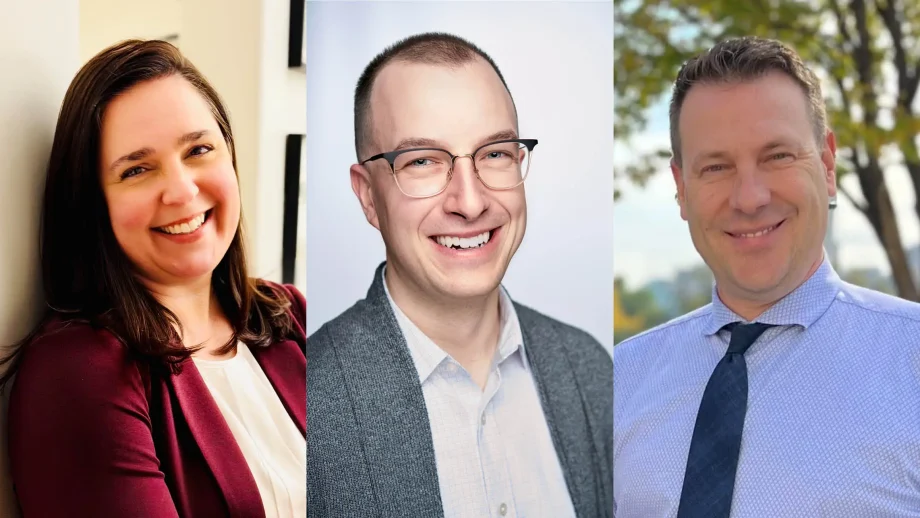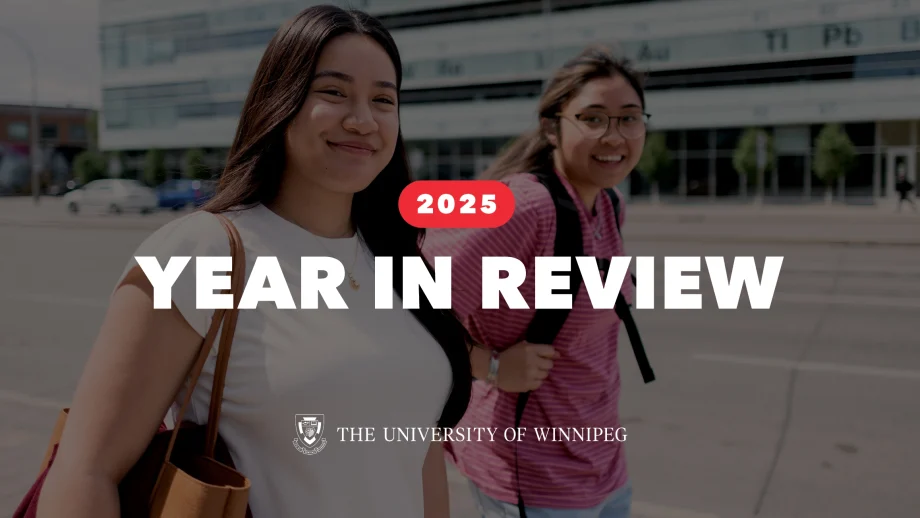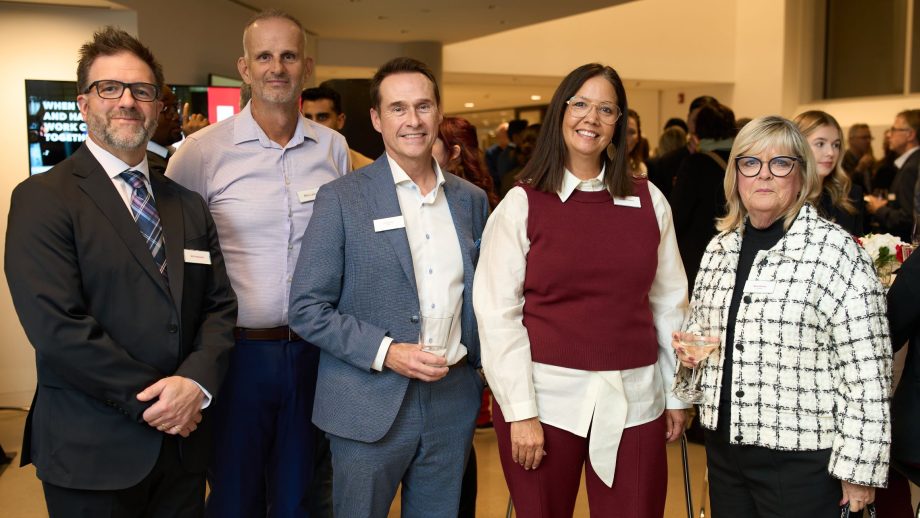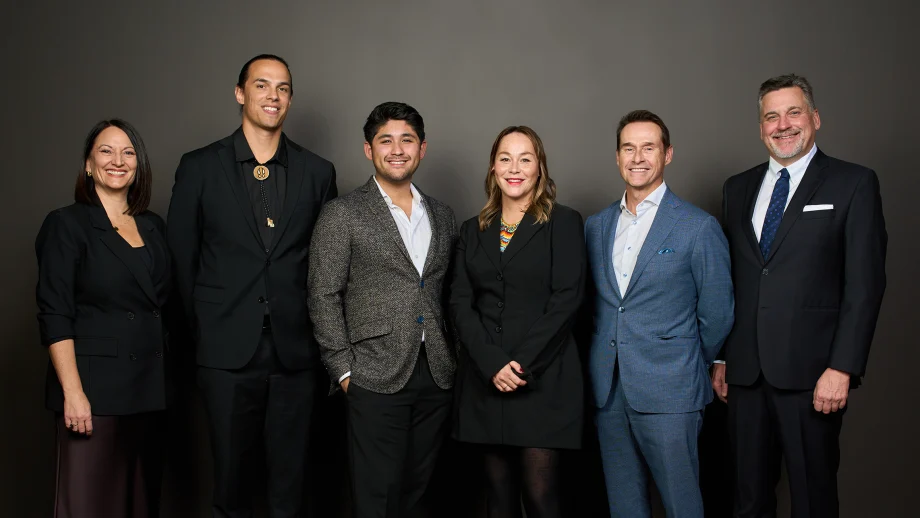July is Disability Pride Month, and University of Winnipeg alum Sarah Anderson (BEd 23) is breaking barriers and paving the way for future teachers living with a disability.
“There is no manual for teaching with a disability,” said Sarah, a first-year teacher at Maples Collegiate High School in Winnipeg. Sarah lives with General Dystonia, a movement disorder that limits her ability to control the muscles throughout her body.
“There are not a lot of teachers that have my type of disability,” said Sarah. “It’s kind of unheard of in this city.”
Sarah knew early on she wanted to be a teacher.
“I grew up with so many great educators that inspired me to want to do this profession,” she said.
It was accessibility that won Sarah over to study education at UWinnipeg.
Sarah uses a wheelchair, making accessibility a top priority in anything she does.
“I think overall, the accessibility was better,” said Sarah when referring to the UWinnipeg campus in comparison to other facilities. “There were more ramps, elevators, and washrooms that were accessible.”
Sarah also credits the Accessibility Services Department at UWinnipeg. The biggest transition for Sarah in attending university was going from a full-time assistant to no assistant.
“I figured out my first year of university, how to carry a binder, how to open it, and how to carry my books with me.”
Accessibility Services assisted Sarah with putting on her winter jacket and helping with small things most able-bodied people take for granted.
As I get older, I have learned the world isn’t designed for people like me.
Sarah Anderson
Sarah was also part of the UWSA for four years.
“Being the Accessibility Director with UWSA was a highlight,” said Sarah. “It gave me leadership and advocacy experience and that goes a long way when you want to become a teacher.”
While at UWinnipeg, Sarah won the Change-Maker award for her work on the More Than a Door campaign which led to the installation of more automatic door openers around the UWinnipeg campus.
Sarah was always encouraged to find her own voice. As a young child, Sarah remembers her mother advocating alongside her, ensuring she felt empowered to speak up and advocate for herself.
“As I get older and become more aware of the world around me, I have learned the world isn’t designed for people like me,” said Sarah. “I realized if I wanted to be successful, I needed to be my own advocate. Some days that is hard, and most days I take pride in that.”
As Sarah reflects on Disability Pride Month, she says her disability itself is a circumstantial reality that she is neither proud of nor ashamed.
“Life and disability have always co-existed,” said Sarah. “I don’t know life without disability. I am proud of what I have achieved, but not the disability itself.”
Sarah described disabilities like an iceberg. As much as people can see on the surface, there is more hidden below that people do not see. Sarah says there are media influences and public perception that affect those living with disabilities. The struggle with internalized ableism and adopting negative beliefs about themselves and their disabilities is an extra hurdle those living with disabilities need to overcome.
“It’s a common thing to want to be successful,” said Sarah. “We want to put our best foot forward. And self-advocacy takes vulnerability. It goes against human nature. People don’t want to admit what they cannot do.”
Sarah understood early on that she wasn’t going to get very far if she didn’t advocate for herself.
“I have a good support system. I realized, I can speak, and I have the ability to communicate. I thought if I was given this ability, I should do something with it.”
Sarah knows she has something to contribute to the world, and intends to do that.
“That is something to be proud of.”
For Disability Pride Month, the library has created a book display and reading list. Check it out on the library page.

